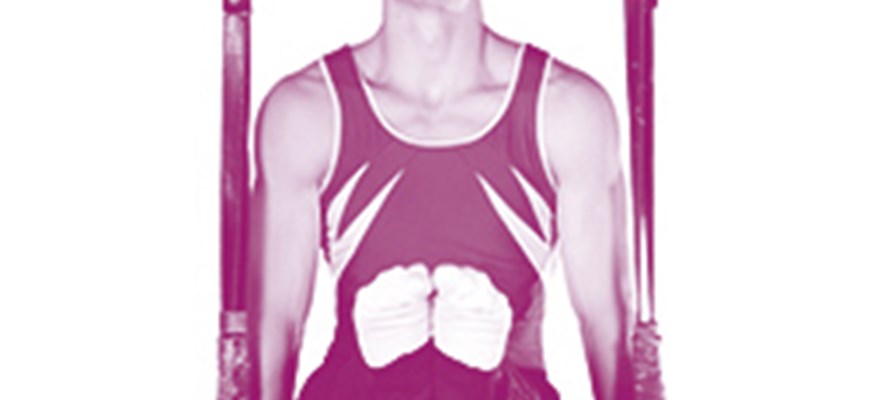
As Sammi Kinghorn, triple European gold medallist and athlete ambassador for Harper Macleod, prepares to compete in the Paralympic Games, many Russian athletes will be looking on longingly, wishing that they were in Rio. Yet for well-publicised reasons revolving around doping, many Russian athletes missed the Olympics and none will be at the Paralympics. Why then, did the International Paralympic Committee (IPC) ban Russia entirely, whilst the International Olympic Committee (IOC) left the door open to participation by Russians, placing the question of entry into the jurisdiction of international federations (IFs)?
These questions of course all hail from widespread concern about Russian anti-doping testing and techniques, and question marks over commitment to anti-doping within élite international sport. A report, published by the World Anti-Doping Agency in July, stated that Russia’s sports ministry “directed, controlled and oversaw” manipulation of urine samples provided by prominent Russian athletes, with positive doping samples going missing. Notwithstanding promises by IOC President Thomas Bach that the “toughest sanctions available” would be imposed against those implicated, the IOC left the door ajar, whilst the IPC slammed it shut. With uniform treatment being a principle underpinning doping, assessing the route to these decisions is important in understanding the outcome.
The IOC: Olympics Rio 2016
The IOC considered that all Russian athletes seeking entry to the Rio Games were considered to be affected by a system subverting and manipulating the anti-doping system. Furthermore, all Russian athletes in the 28 Olympic summer sports had to assume a collective responsibility, in order to protect the credibility of the Olympic competitors, with no presumption of innocence applicable. However, natural justice required individual athletes to have the opportunity to rebut this application of collective responsibility.
That meant, according to the IOC, that each athlete could go beyond the absence of a positive anti-doping report, and have their anti-doping record looked at. The person could not be implicated with the ongoing report into Russian doping, and IFs would have to apply their own rules regarding sanctioning of entire national teams. No person with a prior doping sanction (even if served) might be entered, entry had to be verified by a CAS arbitrator-expert, and once entered, individuals would be subject to rigorous out-of-competition testing, any non-availability being met with automatic withdrawal of accreditation by the IOC.
Notwithstanding that IFs were permitted to determine whether Russian athletes should compete, arbitrations were raised by the Russian Olympic Committee and 68 Russian athletes in athletics, where the impact of the IOC decision was most greatly felt. The challenge centred on the IAAF decision to refuse participation rights to Russian athletes, because their parent federation, the All Russia Athletics Federation, was suspended from membership. These Russians had sought to compete as neutral athletes (i.e. not associated with any country). Unsurprisingly, the IAAF did not agree and the CAS rejected their applications, save for one athlete. The IAAF has very clear rules, which provide that athletes whose national federation is suspended by the IAAF are ineligible to participate in competitions held under IAAF rules, unless specific exceptional circumstances are established. Absent those circumstances, the athletes could demonstrate no entitlement to participate.
The Paralympic Games
The Paralympic Games are organised by the IPC, which determined that the Russian Paralympic Committee (RPC) would be suspended from membership, thus blocking participation at the Paralympic Games. Reasons included that the RPC was allegedly unable to fulfil its responsibilities and obligations to comply with the IPC anti-doping code and the World Anti-Doping Code. An appeal to the Court of Arbitration for Sport was dismissed, as the IPC did not violate any procedural rule in dealing with the disciplinary process leading to the suspension, nor was the decision to suspend and ban the RPC disproportionate in the circumstances. The RPC’s appeal to the Swiss Federal Tribunal was rejected on a number of counts, including failure to exhibit evidence of compliance with a suitable anti-doping programme.
Lessons learned
Whilst the IOC decision may be questioned, thought of as politically convenient, representing an attempt to insulate the IOC from potential lawsuits from prohibited athletes, or thought of as consistent with the route to the Olympics (via IF approval), eyebrows were not raised at the IPC’s decision to ban the RPC per se; but questions were asked as to why the outcome should be different to that of the IOC. Simply put, the IPC is a separate, autonomous organisation, with different governance to that of the IOC. The RPC is wholly responsible, in Russia, for both winter and summer paralympic sport. As such, the IPC was clearly entitled to decide that failure to comply with the anti-doping regime was a problem that could only be met with suspension and a ban from participation.
In this issue
- Beyond the named person service
- Sexual harassment: an everyday problem
- Governing Scotland in a federal United Kingdom
- Losing our judgment? (1)
- Reading for pleasure
- Opinion: Alison Reid
- Book reviews
- Profile
- President's column
- The future, step by step
- People on the move
- Changing face of the courts
- Success: the chimp factor
- Courts reform: a call to pre-action
- Teeth that could be sharper
- Good claims, bad lies
- Unlocking doors: demystifying squatting
- Back to basics
- Brexit and IP: what should solicitors be doing now?
- Agency, insolvency and termination
- Brexit and the agricultural sector
- A carnival for some, but not for others
- Scottish Solicitors' Discipline Tribunal
- Culling of the hybrids
- Common property: what policy?
- Cause of action
- Client balances: reminder issued
- Law reform roundup
- From the Brussels office
- Paralegal pointers
- Your Law Society of Scotland Council Members
- At the doors of the court
- Ask Ash
- To the focused, the medals
- Losing our judgment?
- MacKenzie boosts Society's AML drive







